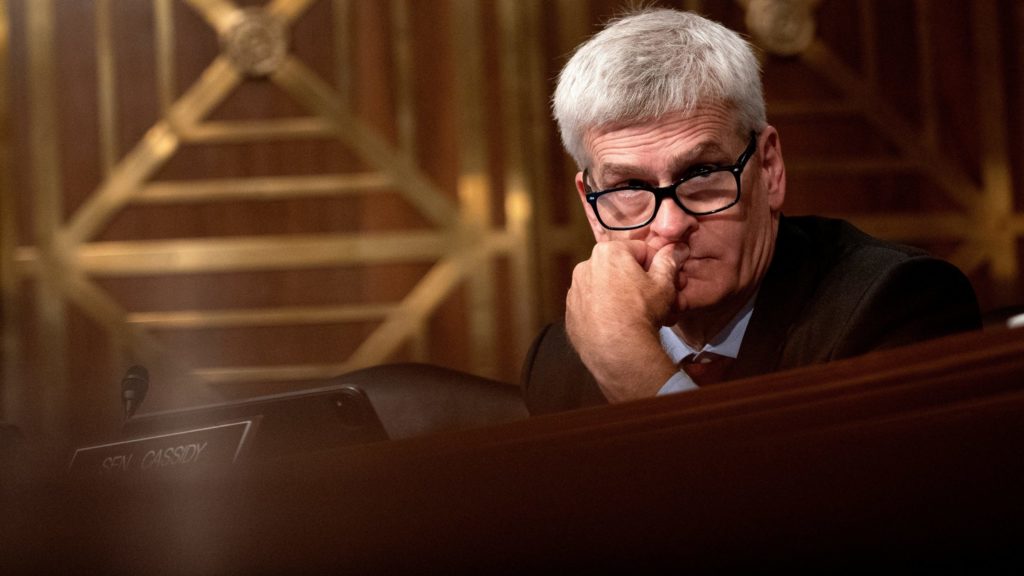The Senate June 4 held a hearing on the impact of post-Dobbs abortion restrictions, with lawmakers alternately criticizing or defending them with respect to women's health care concerns.
Following the Supreme Court's Dobbs v. Jackson Women's Health Organization decision in June 2022 that overturned prior rulings by the high court making abortion access a constitutional right, individual states have moved to either restrict abortion or expand access to it.
The Senate Committee on Health, Education, Labor and Pensions, chaired by Sen. Bernie Sanders, I-Vt., held the hearing titled "The Assault on Women's Freedoms: How Abortion Bans Have Created a Health Care Nightmare Across America."
Sanders delegated the hearing to Sen. Patty Murray, D-Wash., arguing it should be overseen by a woman. In her opening remarks, Murray argued, "Today, we take a close accounting of the trauma Republicans are inflicting on women and families across our country, and the damage they are doing to basic reproductive health care through their horrific anti-abortion crusade."
"No woman -- no one -- should be dragged through pregnancy against their will," she said. "But right now in America, more than a third of women of reproductive age live in states where they essentially don't have the choice to end a pregnancy if they need to."
Murray blamed Republicans, calling the abortion restrictions both "extreme" and "cruel," accusing Republicans of sending women the message "you don't control your body -- we do."
But Sen. Bill Cassidy, R-La., a pro-life physician, argued that Democrats called the hearing to "raise abortion to such a high profile."
"This is partisan politics being played out in this committee hearing," Cassidy said, arguing that a doctor treating a pregnant woman must consider both patients.
"There is no law in any state preventing doctors from treating women going through a miscarriage or ectopic pregnancy or preventing them from saving the life of a mother," he argued. "That is called health care. That is not an abortion."
"I am open to a tough conversation," Cassidy added. "But it must be held with respect for the mother and the defenseless and voiceless unborn child behind me. This is too personal for so many Americans."
The Catholic Church teaches that all human life is sacred from conception to natural death, opposing direct abortion as an act of violence that takes the life of the unborn child.
After the Dobbs decision, church officials in the United States have reiterated the church's concern for both mother and child, and called to strengthen available support for those living in poverty or other causes that can push women toward having an abortion.
Witnesses at the hearing included Madysyn Anderson, who said she was unable to undergo an abortion near her home in Texas due to state restrictions there, as well abortion providers Drs. Nisha Verma and Allison Linton, and Destiny Lopez, acting co-CEO of the Guttmacher Institute.
Pro-life witnesses included Dr. Christina Francis, a board-certified OB-GYN and CEO of the American Association of Pro-Life Obstetricians and Gynecologists, and Melissa Ohden, who is an abortion survivor and the founder and CEO of The Abortion Survivors Network.
Linton argued against state abortion restrictions and claimed their exceptions are often unclear.
"On one hand, we risk medical malpractice and harming a patient if we don't act soon enough," she said. "And on the other, we risk criminal prosecution if a prosecutor feels that we acted too early."
At one point in the hearing, Murray sparred with Francis over her association's opposition to abortion and whether she supported access to the drug Plan B or contraceptive devices like IUDs.
But Francis argued that the abortion restrictions are not behind issues with women's health care.
"Pro-life laws have not created a women's healthcare nightmare," she said. "The idea that induced abortion is the only way women can be successful or healthy has."

